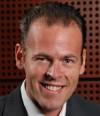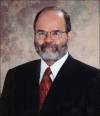Invited Speakers
Below you can find an overview of the invited speakers and abstracts of their talks. Please note that ASE 2010 provides other opportunities to make your attendance even more inspiring and productive ! The full program can be consulted online in the Program section of this website.
Overview
- Cordell Green
25th Anniversary Keynote: “The Actual Implementation Will Be Derived from the Formal Specification” – KBSA, 1983
(thursday, September 23, 2010)
Jan Bosch (September 22, 2010)
| Towards Compositional Software Engineering Jan Bosch |
|
|---|---|
| Slides | |
| Abstract | |
 Large-scale software development, for the longest time, has relied heavily on centralized, process-centric approaches, such as CCMI. There are three trends that make applying a traditional approach increasingly infeasible, i.e. the increasing adoption of software product lines, global software development and software ecosystem. Although agile software development methods have removed much of the inefficiencies in small and medium-scale software development, addressing the inefficiencies in large scale software development requires a more compositional approach. The presentation introduces the differences between intra-team and inter-team coordination and presents an architecture-centric approach to large-scale software development that heavily relies on automated tool support. Large-scale software development, for the longest time, has relied heavily on centralized, process-centric approaches, such as CCMI. There are three trends that make applying a traditional approach increasingly infeasible, i.e. the increasing adoption of software product lines, global software development and software ecosystem. Although agile software development methods have removed much of the inefficiencies in small and medium-scale software development, addressing the inefficiencies in large scale software development requires a more compositional approach. The presentation introduces the differences between intra-team and inter-team coordination and presents an architecture-centric approach to large-scale software development that heavily relies on automated tool support. |
|
| Bio | |
| Jan Bosch is VP, Engineering Process at Intuit Inc. Earlier, he was head of the Software and Application Technologies Laboratory at Nokia Research Center, Finland. Before joining Nokia, he headed the software engineering research group at the University of Groningen, The Netherlands, where he holds a professorship in software engineering. He received a MSc degree from the University of Twente, The Netherlands, and a PhD degree from Lund University, Sweden. His research activities include compositional software engineering, software architecture design, software product families and software variability management. He is the author of a book “Design and Use of Software Architectures: Adopting and Evolving a Product Line Approach” published by Pearson Education (Addison-Wesley & ACM Press), (co-)editor of several books and volumes in, among others, the Springer LNCS series and (co-)author of a significant number of research articles. He is editor for Science of Computer Programming, has been guest editor for journal issues, chaired several conferences as general and program chair, served on many program committees and organized numerous workshops. As a consultant, as a professor and as an employee, Jan has worked with and for many companies on strategic reuse in general and software product lines specifically, including Philips, Thales Naval Netherlands, Robert Bosch GmbH, Siemens, Nokia, Ericsson, Tellabs, Avaya, Tieto Enator and Det Norska Veritas. Around software product lines, he has published on, advised and implemented specific techniques and methods around, among others, software architecture, software variability management, the link to business strategy, organizational models, assessment frameworks, adoption frameworks and quality attributes. More information about his background can be found at his website: www.janbosch.com. When not working, Jan divides his time between his family, a spouse and three young boys, reading science fiction and sports, preferably long distance running, swimming, biking and horseback riding. |
Cordell Green (23 September, 2010)
Axel van Lamsweerde (24 September, 2010)
| Model Engineering for Model-Driven Engineering Axel van Lamsweerde |
|
|---|---|
| Abstract | |
 The effectiveness of MDE relies on our ability to build high-quality models. This task is intrinsically difficult. We need to produce sufficiently complete, adequate, consistent, and well-structured models from incomplete, imprecise, and sparse material originating from multiple, often conflicting sources. The system we need to consider in the early stages comprises software and environment components including people and devices. The effectiveness of MDE relies on our ability to build high-quality models. This task is intrinsically difficult. We need to produce sufficiently complete, adequate, consistent, and well-structured models from incomplete, imprecise, and sparse material originating from multiple, often conflicting sources. The system we need to consider in the early stages comprises software and environment components including people and devices. Such models should integrate the intentional, structural, functional, and behavioral facets of the system being developed. Rigorous techniques are needed for model construction, analysis, and evolution. They should support early and incremental reasoning about partial models for a variety of purposes, including satisfaction arguments, property checks, animations, the evaluation of alternative options, the analysis of risks, threats and conflicts, and traceability management. The tension between technical precision and practical applicability calls for a suitable mix of heuristic, deductive, and inductive forms of reasoning on a suitable mix of declarative and operational models. Formal techniques should be deployed only when and where needed, and kept hidden wherever possible. The talk will provide a retrospective account of our research efforts and practical experience along this route, including recent progress in model engineering for safety-critical medical workfows. Problem-oriented abstractions, analyzable models, and constructive techniques are pervasive concerns. |
|
| Bio | |
| Axel van Lamsweerde is Full Professor at the Department of Computing Science of the Universite catholique de Louvain, Belgium. He was formerly research associate at Philips Research Labs and professor at the universities of Namur and Bruxelles. He was also research fellow at the University of Oregon and the Computer Science Lab of Stanford Research Institute (Menlo Park, CA). He was co-founder of two software technology transfer centers supported by the European Union. His research interests are in precise techniques for requirements engineering, system modeling, high assurance systems, lightweight formal methods, process modeling and analysis, medical safety, and knowledge-based software development environments. Since 1990 he has been instrumental in the development of the KAOS goal-oriented modeling language, method, and toolset. The method and toolset have been used worldwide in more than 25 industrial projects. He is author of the book Requirements engineering: From System Goals to UML Models to Software Specifications (Wiley). van Lamsweerde was Editor-in-Chief of the ACM Transactions in Software Engineering and Methodology (http://tosem.acm.org/) (ACM, New York), Program Chair of major international software engineering conferences including ESEC'91 and ICSE'94, founding member of the IFIP WG2.9 Working Group on Requirements Engineering, and is currently Associate Editor of the IEEE Transactions on Software Engineering (http://www.computer.org/tse/). He has been keynote speaker at major conferences in the field including the International Conference on Software Engineering (ICSE'2000) and the International Joint Conference on Requirements Engineering (RE'04). He is an ACM Fellow (2000), recipient of the ACM SIGSOFT Distinguished Service Award (2003), and the ACM SIGSOFT Outstanding Research Award (http://www.sigsoft.org/awards/outResAwd.htm) (2008). |






































